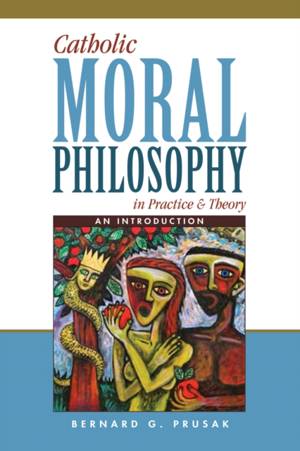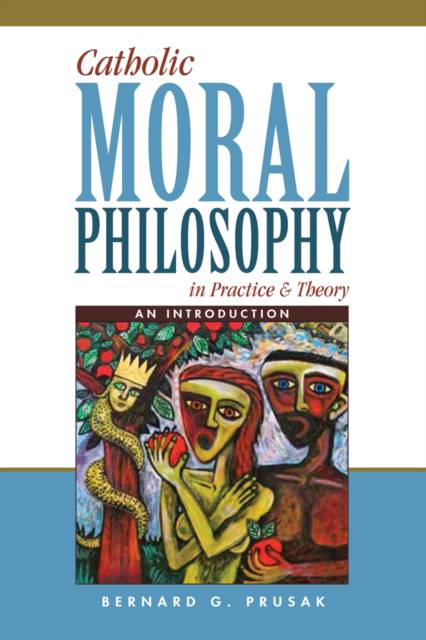
Je cadeautjes zeker op tijd in huis hebben voor de feestdagen? Kom langs in onze winkels en vind het perfecte geschenk!
- Afhalen na 1 uur in een winkel met voorraad
- Gratis thuislevering in België vanaf € 30
- Ruim aanbod met 7 miljoen producten
Je cadeautjes zeker op tijd in huis hebben voor de feestdagen? Kom langs in onze winkels en vind het perfecte geschenk!
- Afhalen na 1 uur in een winkel met voorraad
- Gratis thuislevering in België vanaf € 30
- Ruim aanbod met 7 miljoen producten
Zoeken
Catholic Moral Philosophy in Practice and Theory
An Introduction
Bernard G Prusak
Paperback | Engels
€ 27,95
+ 55 punten
Omschrijving
Written for readers both in school and out of school, this book serves as an introduction to the living tradition of Catholic moral philosophy. In accord with Pope Francis's injunction to seek to initiate processes rather than dominate spaces, the book is structured, as compared to the typical book in moral philosophy, upside down. It begins, not by laying out a moral theory, but instead with a handful of controversies which the reader is invited to consider as a way into the practice and theory of moral philosophy. The goal is to enable and encourage readers to enter into the twists and turns of the tradition of Catholic moral philosophy, to find it exciting, to become more reflective, and to agree and disagree even vehemently, but with greater appreciation of the tradition's depths and complexities. Topics include what distinguishes Catholic moral philosophy; how Catholics ought to argue about abortion; double-effect reasoning, the principle of lesser evil, and casuistry more generally; Thomas Aquinas on self-defense; the evolution and state of the art of just war theory; the ethics of eating meat; the moral limits of markets, in particular whether markets in human kidneys ought to be legal; conceptions of conscience; and finally natural law theory, virtue ethics, and modern moral philosophy. +
Specificaties
Betrokkenen
- Auteur(s):
- Uitgeverij:
Inhoud
- Aantal bladzijden:
- 320
- Taal:
- Engels
Eigenschappen
- Productcode (EAN):
- 9780809149780
- Verschijningsdatum:
- 3/05/2016
- Uitvoering:
- Paperback
- Formaat:
- Trade paperback (VS)
- Afmetingen:
- 150 mm x 226 mm
- Gewicht:
- 408 g

Alleen bij Standaard Boekhandel
+ 55 punten op je klantenkaart van Standaard Boekhandel
Beoordelingen
We publiceren alleen reviews die voldoen aan de voorwaarden voor reviews. Bekijk onze voorwaarden voor reviews.









